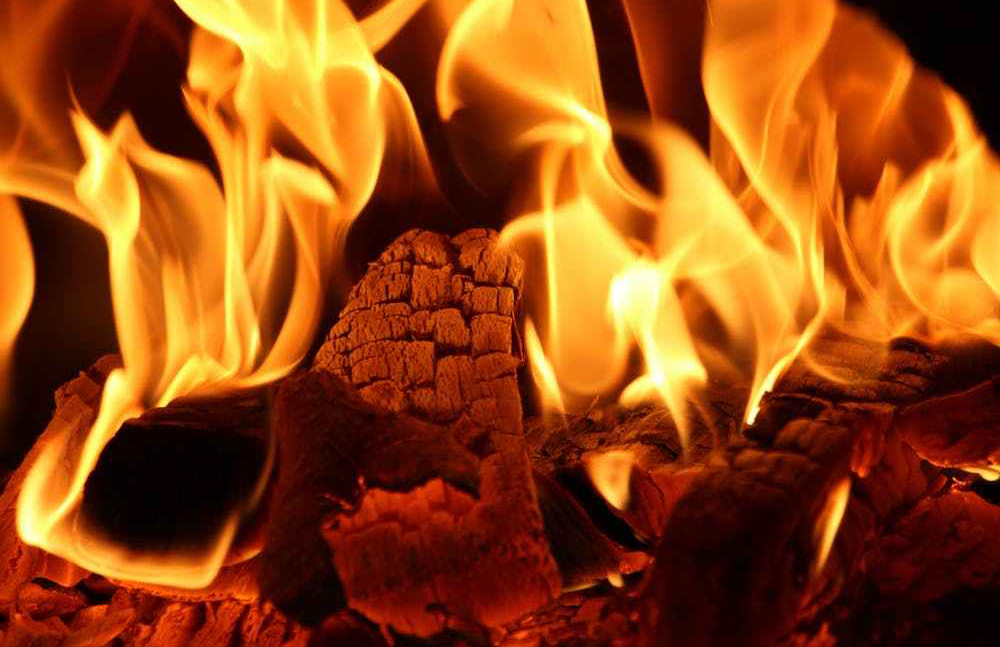“Catch on fire and people will come for miles to see you burn.”
John Wesley, an English cleric, theologian and evangelist
It can drive away shadows and keep us warm on a cold winter night. According to Jerry Adler, it makes us human, and its name is fire. Let’s look at common fire collocations and idioms to enrich our English vocabulary. We promise that this post will not only make you more knowledgeable but also warmer…
FIRE COLLOCATIONS
- Look! The building is on fire! = The building is burning!
- A lantern was knocked over and the barn caught fire. = The barn started burning. (to catch fire = to catch on fire)
- Groups of rioters attacked and set the police headquarters on fire. = They made the police headquarters start burning (to set something on fire = to set fire to something: They set fire to the police headquarters.)
- He joined the crowds of men and women fighting the fire. = …trying to extinguish/put out a fire.
- Firefighters are still battling to contain the blaze. = …battling to prevent the very large fire from spreading to other places.
- A fire broke out in the library. = A fire started there.
- The fire burnt for three days before it was finally contained. = It raged/blazed.
- The fire must have gone out during the night. = The fire must have stopped burning…
- In 1925, a disastrous fire swept through the museum. = It spread quickly through the museum.
- The fire gutted the building, leaving just a charred shell. = The fire destroyed the building…
- We had plenty of dry wood, so the fire lit easily. – If a fire lights, it started burning.
- I came in and kindled a fire in the stove. – I lit paper/wood to start a fire in the stove.
- The fire was beginning to die down. = The fire was getting less intense.
- The fire smoked instead of burning properly. – It just produced smoke.
Of course, there are many more collocations relating to fire, which actually has at least 5 different meanings: 1. uncontrolled burning (e.g. The hot dry weather has increased the risk of forest fires.); 2. controlled burning (e.g. We went off to collect wood to build a fire.); 3. heating equipment (British English) (e.g. There was an old gas fire in the bedroom.); 4. shots from a gun (e.g. Armed police arrived on the scene, and there was an exchange of fire.); 5. strong feelings (e.g. His words were full of fire and passion.).

Common adjective + fire collocations are:
- Big fire: A small spark could turn into a big fire.
- Huge fire: There is a huge fire raging down at the port.
- Fierce fire: The fire was fierce, but then they came and put it out.
- Serious fire: There was a serious fire in the main market.
- Disastrous fire: Both his parents died in a disastrous fire.
- Heavy fire: There’s a heavy fire zone.
- Blazing fire: As the old Chinese saying goes, joint efforts to collect firewood will build a blazing fire.
- Crackling fire: I love crackling fire sounds.
- Roaring fire: Come on, let’s put you near a roaring fire.
Fire: destructive flames, shots from guns, burning fuel for cooking or heating
Fire is also a verb with a few meanings: 1. to shoot a weapon (e.g. He fired at the target.); 2. to make someone leave their job (e.g. The boss fired him.); 3. to fire questions = to ask many questions (e.g. Reporters fired questions at her as she left the court house.); 4. if an engine fires, it starts to work (e.g. The engine fired and we moved off.); 5. to bake clay (e.g. I have watched the potters fire and paint their bowls and vases.).
FIRE IDIOMS
- To fire someone’s imagination – to make someone feel very interested in something and excited about it: The painter fired the imagination of contemporaries and of later generations.
- To have fire in one’s belly – to be very enthusiastic and energetic: She really has fire in her belly. I’m sure she’ll be very successful.
- To set the world on fire – to do something that creates a lot of interest or excitement: The company set the world on fire.
- To fire someone with enthusiasm – to make someone feel very enthusiastic: She is so passionate about what she is doing she can fire anyone with enthusiasm.
- Firing on all cylinders – putting a lot of energy and effort into doing something: The team managed to record a crucial victory without firing on all cylinders.
- To come under fire – to be criticized: The government has come under fire again.
- To draw fire – to be severely criticized: The government is drawing fire from all sides.
- To fight fire with fire – to criticize someone who is criticizing you: The President answered his critics by fighting fire with fire.
- To be in the line of fire – to be likely to be criticized for something: I don’t appreciate being put in the line of fire.
- To hold/hang (hung; hung) fire – to wait before you take action: The banks have decided to hold fire and not raise interest rates until after the election.
- To play with fire – to act in a way that is very dangerous and to take risks: We are told not to play with fire, but we enjoy it.
- To get on like a house on fire – to become good friends very quickly and have a lot to talk to each other about: We get along like a house on fire because we have so much in common. (More friend and friendship vocabulary is here.)
- Old flame – a person that you loved or had a sexual relationship with in the past: He’s just an old flame. (More love idioms are here.)
- To breathe fire – to be very angry about something: You’d better stay away from her. She’s breathing fire.
- To light (lit; lit) a fire under someone – to force someone to take action or to start behaving in the way you want: The deadline really lit a fire under us.
- To go up in smoke – to be destroyed by flame: The church went up in smoke 2 years ago.
- To go up in flames – to start burning strongly and get destroyed by fire: Fires broke out everywhere, the entire city went up in flames.
- There’s no smoke without fire / where there’s smoke there’s fire – there’s always some reason for a rumor: She says the accusations are not true, but there’s no smoke without fire.
If you like learning English with songs, you might be delighted to know that there are lot of those containing fire idioms. Here is our short list of such songs:
The lyrics are here.
IDIOM: on fire
MEANING: very enthusiastic, passionate about something. If something is on fire, it is burning (e.g. the building is on fire).
SENTENCE: This girl is on fire.
Related: Idioms in Alicia Keys’s Songs
The lyrics are here.
IDIOM: there’s no smoke without fire
MEANING: if unpleasant things are said about someone or something, there is probably a good reason for it.
SENTENCE: There’s no smoke without fire, baby, you’re a liar.
The lyrics are here.
IDIOM: to go up in flames
MEANING: to by destroyed
SENTENCE: We have slowly gone up in flames. (= Our love has been destroyed.)
The lyrics are here.
IDIOM: old flame
MEANING: someone who you had a romantic relationship with in the past
SENTENCE: Old flame, you’re still the one that holds me.
We hope you liked the article. For more content like this, please subscribe to our blog. Thank you for reading!
